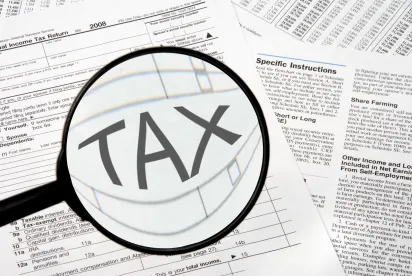On August 28, 2012, Illinois Governor Pat Quinn signed into law HB 5192, known as the “Illinois Independent Tax Tribunal Act of 2012.” The new enactment will bring about a major change in the procedures available to taxpayers in many types of disputes with Illinois tax authorities.
The law establishes the Illinois Independent Tax Tribunal (“Tribunal”). Back in 2011, the legislature passed an initial law stating that starting on July 1, 2013, the Illinois Department of Revenue (IDOR) would no longer have the authority to determine controversies related to tax deficiencies and liabilities, and that such determinations would be made by an independent tribunal. (See Public Act 97-636.) That 2011 legislation, however, provided no detail as to who would serve on the tribunal, what types of disputes would be heard by the tribunal, what the procedures would be, or any other specifics regarding the new adjudicative body.The new law fills in many of the details.
The Tribunal is established as a new state agency, independent of IDOR. The enactment states that the Tribunal is designed to provide taxpayers with a means of resolving disputes that “ensures both the appearance and reality of due process and fundamental fairness.” The Tribunal is charged with providing administrative hearings in all tax matters except those matters specifically reserved to IDOR or another entity by statute. The Tribunal’s original jurisdiction is extensive and, as to those matters, preempts jurisdiction in other Illinois trial courts. The Tribunal may review any IDOR determination (a) reflected on a Notice of Tax Liability, Notice of Claim Denial, Notice of Deficiency, or Notice of Penalty Liability, (b) where the amount at issue exceeds $15,000 (exclusive of penalties and interest), and (c) that arises under the following acts:
|
|
|
|
|
|
|
|
|
|
|
|
|
|
|
|
|
|
|
|
|
|
|
Notably, the Tribunal will not have jurisdiction over some tax matters, including property tax assessment disputes; property tax exemption disputes; disputes on IDOR tax matters that have become final; informal appeals; and challenges to administrative subpoenas.
To commence an action before the Tribunal, a taxpayer must file a timely petition and pay a fee. IDOR must then file an answer within 30 days. Tribunal cases will be heard by Administrative Law Judges (ALJ’s), appointed by the Governor and subject to Senate confirmation. Proceedings before the Tribunal will be tried de novo and the rules of discovery and evidence as applied in civil cases in Illinois will apply. IDOR will be represented by the Attorney General. Taxpayers will bear the burden of persuasion by a preponderance of the evidence. Upon completion of the proceedings, the Tribunal will render a decision within 90 days after the completion of post-hearing briefing (or after the conclusion of the hearing if there is no post-hearing briefing). Proceedings will be open to the public unless ordered to be sealed. Decisions may be appealed to the Illinois Appellate Court pursuant to provisions of Illinois’ Administrative Review Law. Decisions of the Tribunal are to be published.
The Tribunal is to exercise its jurisdiction not later than July 1, 2013, but taxpayers may elect to commence a proceeding in the Tribunal before that date.
The Tribunal provides a new forum — located in a new state agency that is independent of IDOR — for Illinois taxpayers engaged in a tax dispute with IDOR. With recent increases in state income tax rates, this legislation is timely. The new forum places the contest in a forum that is intended to be both fair and perceived as fair. In that the Attorney General will now represent the State, with independent ALJ’s presiding and with the rules of Illinois courts being applied, the formality attending these types of contests will naturally increase from what currently prevails. This increased formality will result in more emphasis being placed upon the quality of the advocacy and lawyering provided by both sides. This increased formality will have the beneficial side-effect of promoting the availability of settlements upon a reasonable basis, assuming that the taxpayer properly leverages the increased formality. In sum, this legislation heralds a welcome paradigm shift for Illinois taxpayers and tax practitioners.



 />i
/>i

